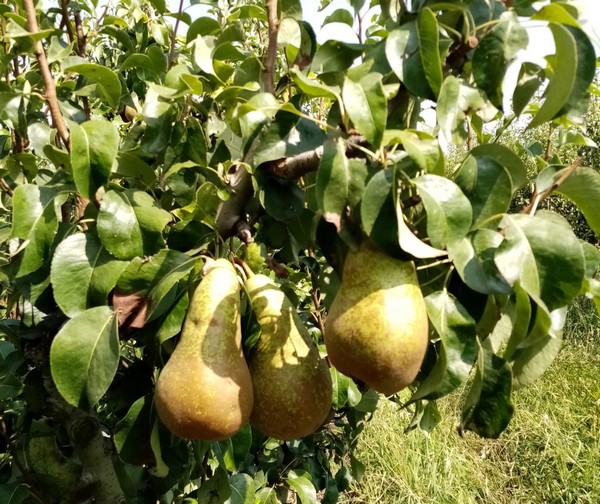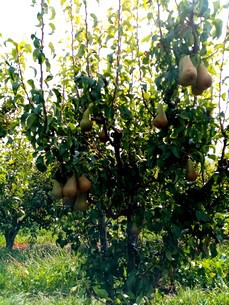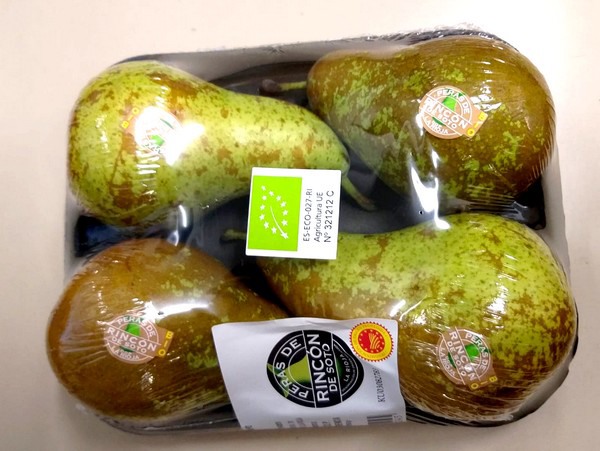The marketing season is underway for La Rioja’s Conference pear, slightly burdened by high prices, especially in the wholesale channel. "The campaign was eventually better than we expected," says Rodrigo Mauleón, manager of the La Rioja-based cooperative Frutos del Campo. "In March and April, we had many problems with drought and we did not know if we were going to have water for irrigation, and then in July there were storms that caused part of the region to be declared a disaster area. However, thanks to the fact that the summer was not so hot, the harvest has gone quite well in terms of volume, and the pears have finally reached a good size. The most remarkable aspect this year has been the almost total lack of russeting due to the lack of humidity and fog in the spring."

"As for prices, from the beginning, prices at origin have been higher than in the previous year due to the scarcity of pears in Europe, mainly in Italy. In fact, Italian buyers have been to Catalonia, Aragon and also here, to La Rioja, and taken a fairly large amount of Spanish pears."
"Italy is one of the largest European producers of pears and, when its situation became clear, it tried to stock up on fruit so as not to lose its sales in the domestic and the export markets. This caused prices to rise at the time, which is what we all want, in the end, but now the aim is to try maintaining them and sell all the pears that are in stock. Lately, there has been less interest on the part of Italian buyers, who apparently have switched to Belgium, and here in Spain the market is slightly burdened."
 "In any case, it is worth mentioning that while the consumption of Conference pears remains steady at supermarkets, in other channels, such as traditional markets, there is some struggle, and we believe this is due to a price issue. The truth is that everything has become more expensive for the consumer, and this is causing changes in people's consumption habits."
"In any case, it is worth mentioning that while the consumption of Conference pears remains steady at supermarkets, in other channels, such as traditional markets, there is some struggle, and we believe this is due to a price issue. The truth is that everything has become more expensive for the consumer, and this is causing changes in people's consumption habits."
"The organic market is more stable than the conventional one"
It should be noted that the Frutos del Campo cooperative is mostly devoted to organic production, which accounts for 80% of the volume of Conference pears harvested. "Back in the day, we decided to make a commitment to producing organically, and growers are happy with the results they are obtaining."
"As regards pome fruit, in addition to pears, we also work with apples," says Rodrigo. "Many hectares of apple plantations have been transformed from conventional to organic in recent years, and as it happens with any horticultural crop, when there is oversupply, prices are not as good as in previous years. Still, we are not seeing the same growth with pears, despite the arrival of new productions."
"The problem of growing organic pears is that you also need to export, because with the current consumption levels, we would not be able to sell all the production in Spain. In fact, at Frutos del Campo, we export our pears mainly to France, the United Kingdom, Greece and Portugal; the latter is also the main destination for our organic apples."

"The organic market is characterized by being very stable, without major price increases or decreases, and while there is a price differential between organic and conventional fruit, the biggest difference is observed with the small sizes, which yield a greater relative value compared to small-sized conventional fruit."
"To get an idea of this difference, the conventional PDO Rincón de Soto pear of sizes 60-65 packed in single layer boxes now costs around 1.20 euros/kg, while the organic Conference pear of sizes 60-65, and even sizes 55-60, is sold in bulk for between 1.80 and 1.90 euros/kg."

"Last year, we finished the campaign in April because we had a small harvest, and this year we plan to continue until May. Everything will depend on consumption, and although it has slowed down a bit now, as it has for all products after Christmas, we hope that it will recover in the coming weeks."
For more information:
Frutos del Campo
Av. Gonzalo de Berceo, 81
26559 Aldeanueva de Ebro, La Rioja. Spain
Tel.: +34 941 14 23 26
info@frutosdelcampo.es
http://frutosdelcampo.es
